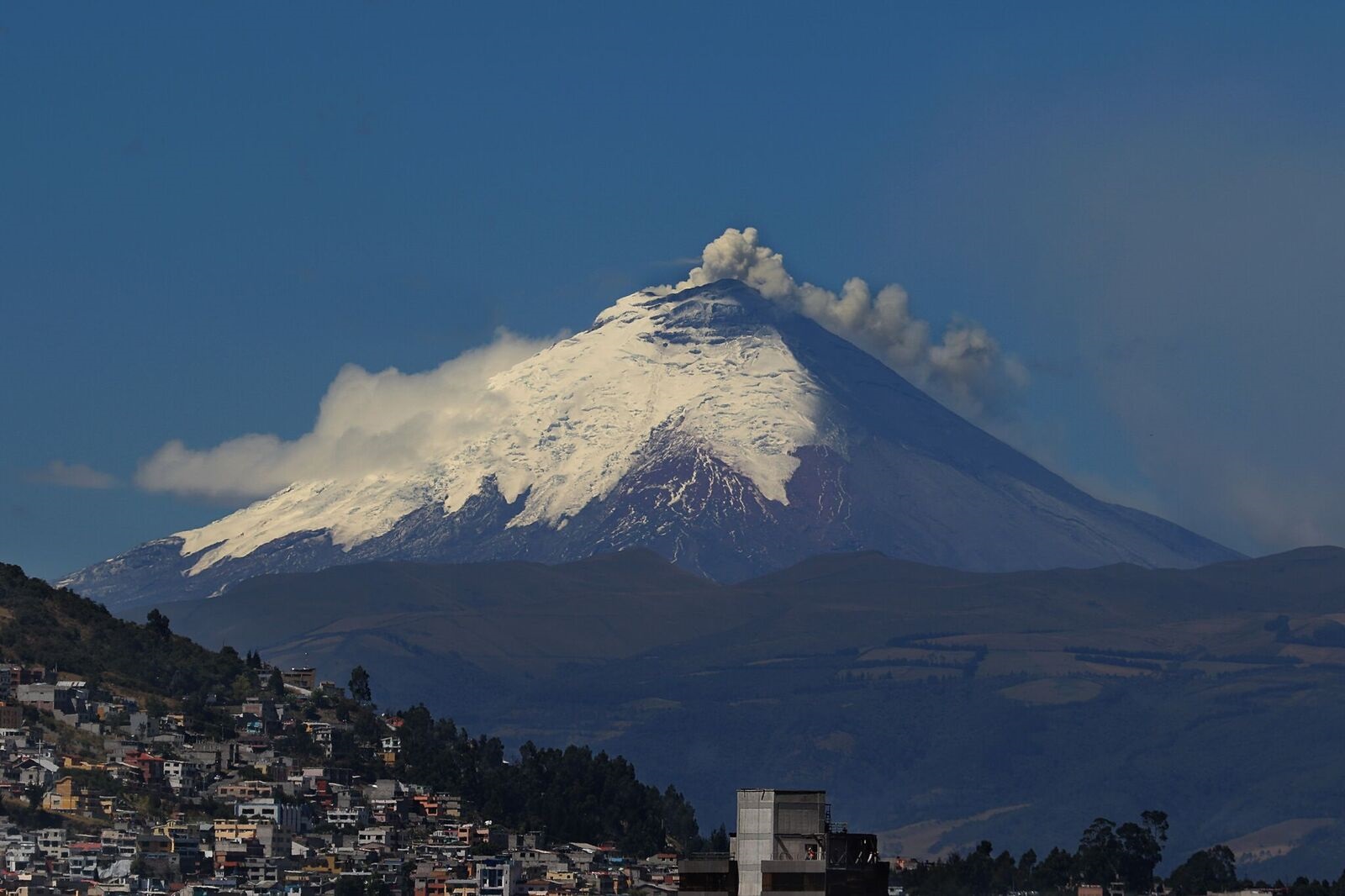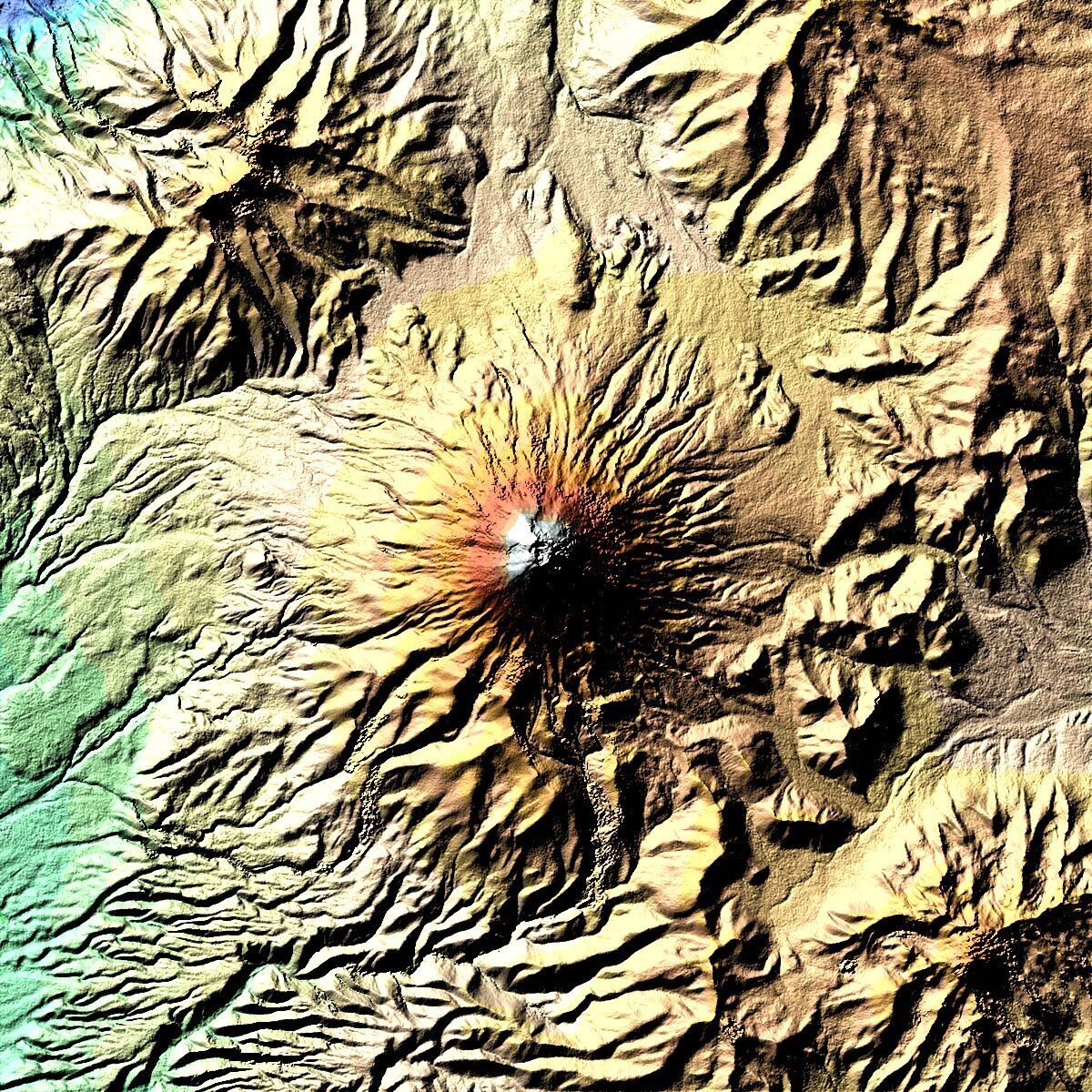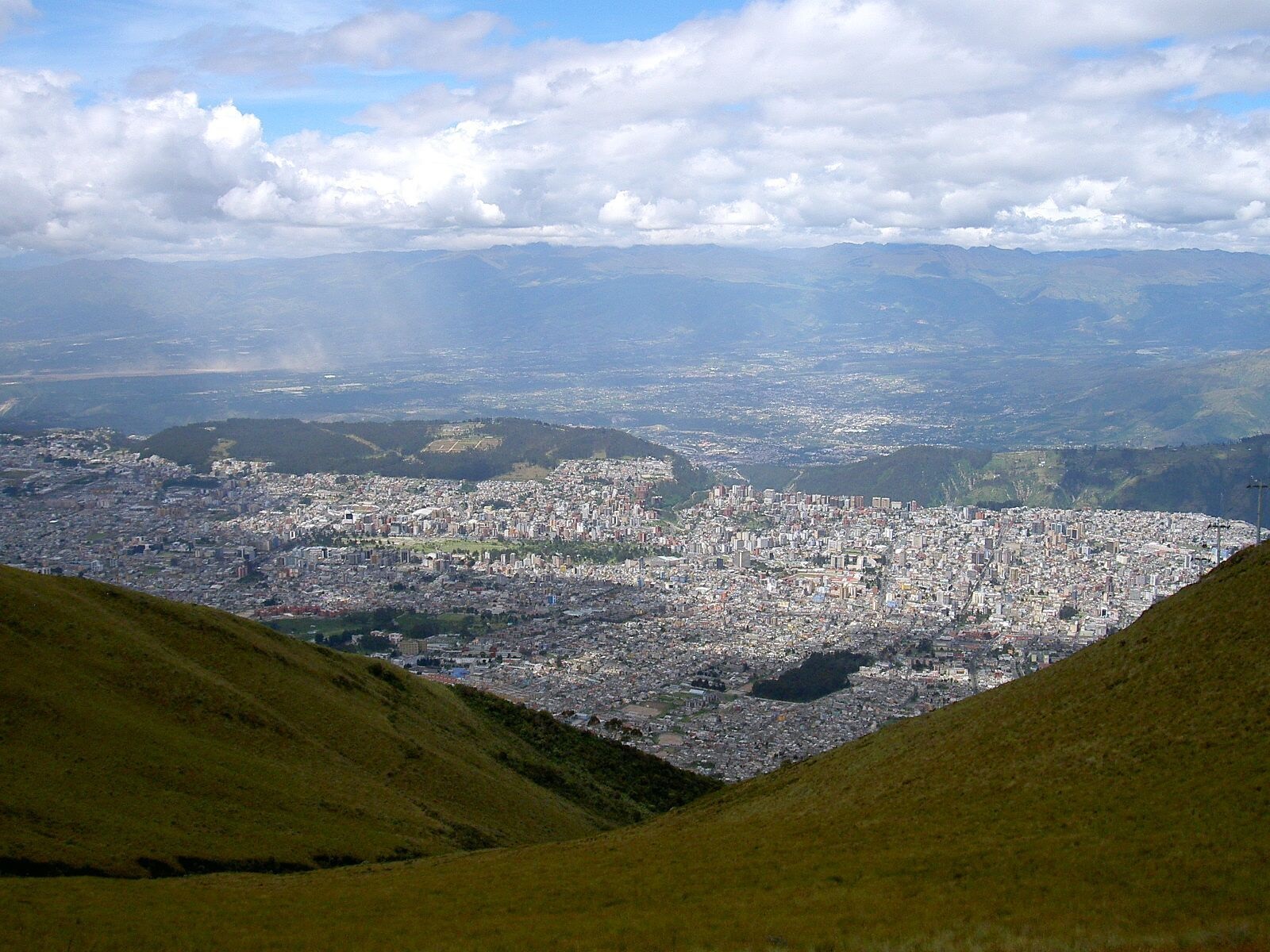In the shadow of a rumbling volcano, Quito, Ecuador solicits just-in-time advice from the world’s disaster experts
by Anne Frances Johnson
In his 1979 hit song, “Volcano,” Jimmy Buffet breezily exclaims, “I don’t know where I’m a-gonna go when the volcano blows!” The catchy refrain, written in reference to a then-dormant Caribbean volcano near where Buffet was recording, today rings painfully true for millions of people living in the shadows of volcanoes.
Although most volcanoes could erupt at any time, the danger is easy to ignore—until the mountain awakens, and the risk suddenly becomes very real.
That’s just what happened in Quito, Ecuador in August 2015 when Cotopaxi, a volcano just 30 miles from the city, began to rumble. A small eruption followed by a steady stream of steam-and-ash plumes—signs of magma rising into the volcano—put the city on high alert. As residents and officials turned a wary eye toward the mountain, one question took on new urgency: How can we protect lives and infrastructure from a catastrophic eruption that could arrive any time of day or night?

Cotopaxi spews hot ash during a minor eruption in August 2015. Photograph courtesy of Carlos Rodríguez/Andes.
Cotopaxi’s last large-scale eruption was in 1877, and the volcano’s level of activity suggests another one is inevitable. In addition to spewing lava, a major eruption would melt Cotopaxi’s glaciers and send a large flow of material barreling down the mountain, posing an immediate risk to people and potentially causing rivers to overflow their banks. Some 120,000 people living in the valley beneath the volcano would have a mere 12 minutes to escape the lava’s path, and more than 325,000 other area residents would have only slightly more time to evacuate. An eruption could also create significant long-term challenges across a broad area, including dangerous air quality and disruptions to infrastructure, food systems and water supplies.
As danger looms, a city gets coaching from the crowd
Aware that the city was underprepared for a significant eruption, The Governance Lab, a program of the New York University Tandon School of Engineering, volunteered its time and expertise to help local officials accelerate preparation efforts. The GovLab, which helps governments and other institutions work collaboratively to solve problems, teamed up with Linq, the city’s innovation agency.
“We were very aware that this was a time-sensitive matter—we needed experts, and we needed them fast,” explained Dinorah Cantú-Pedraza, a human rights lawyer and Research Fellow at The GovLab who collaborated on the project. “So that’s why we decided to create online sessions focused on how innovations can solve specific problems facing the city.”

A digital elevation model of Cotopaxi shows the volcano’s inner and outer craters. The outer crater is 800 meters across. Image courtesy of NASA Earth Observatory.
With support from the Knight Foundation, the team set up a series of 12 teleconference sessions spanning six weeks. Each session was organized around specific gaps in the city’s disaster response plans, such as how to best coordinate communication during an eruption, how to plan an evacuation and how to shelter displaced people. Spreading the word on social media and existing networks, organizers were able to quickly draw in experts from around the world.
“I believe that when you give people a chance to have a meaningful participation and show that what they do matters, they will help you,” said Cantú-Pedraza. “Usually people get together after the disaster happens, and this was an opportunity to get together before a disaster. It shows that people are not only moved by horrible images and tragedy, but are also moved by hope and solidarity.”
During each 90-minute session, city officials shared background information about the current state of readiness in the session’s area of focus. Participants then exchanged knowledge and brainstormed solutions in an open discussion moderated by an expert in the field. Volunteer note-takers produced a report from each session to make it easy for Quito officials to act on the ideas that were generated.
In their call for participants, organizers defined “expert” broadly to include people with skills, credentials, lived experience and passion for a topic. “Sometimes your job title isn’t enough to identify your expertise—we wanted to get beyond just titles and find the people with the experience and knowledge we needed,” said Cantú-Pedraza.
The results were impressive. The first few sessions attracted more than 60 experts and generated such a large amount of useful input that city stakeholders decided to pause the sessions after the first six to allow staff time to act on the ideas that had been surfaced. The sessions are expected to restart after an initial wave of implementation.
In the meantime, Cotopaxi itself seems to have paused its rumblings, quieting down after several months of continuous activity. It’s a welcome break for the city, which now, it appears, has a bit more time to prepare for potential catastrophe.
A model for getting help where it’s needed most
Expanding human populations mean that ever more people are settling in the vicinity of volcanoes, so it’s not unlikely that another major city will find itself in Quito’s predicament before long. Cantú-Pedraza says the crowdsourcing approach could be useful not only for these situations but also for cities facing other types of disasters and even other types of challenges altogether. The Cotopaxi experience shows that experts are more than willing to help communities in need, and that even a minimal time commitment of one 90-minute session can make a real difference.

Quito and surrounding areas are heavily settled. A large eruption could put hundreds of thousands of lives at risk and would likely disrupt infrastructure, food and water. Image by Terpsichores under the Creative Commons Attribution-Share Alike 3.0 license.
One of the biggest lessons from the experience has been one Cantú-Pedraza said she sees again and again: “The hardest task is having a good problem definition; if you don’t have that, it’s very hard to get answers. Our learning process showed us that if you can make the problems as specific and as granular as possible, the solutions are much more actionable.”
GovLab’s “fail-fast, learn-by-doing” approach is crucial to its projects’ success in remaining responsive to the problems at hand. “That was a central element in how we worked with our partners and improved the approach as we went forward,” said Cantú-Pedraza.
To help translate the Cotopaxi crowdsourcing model for other circumstances, GovLab is working to build a network of innovators and experts that can be tapped on short notice to address problems as they emerge around the world. Although we can hope for the best in Quito and elsewhere, the reality is that we must plan for the worst.
Anne Frances Johnson is founder and lead science writer of Creative Science Writing and a contributor to the Thriving Earth Exchange.
